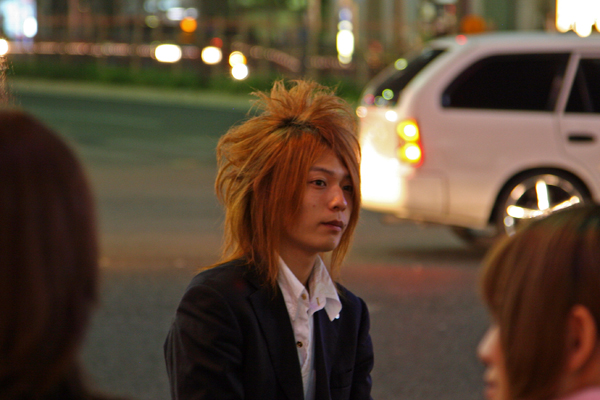Four weeks after the Great Eastern Japan Earthquake, the mood in Tokyo is still somber. This was the worst natural disaster to strike Japan in human memory, and Japan is still in mourning. Tokyo at night is quiet: restaurants are fairly full, but close early, and no one is really in the mood to party. The news is full of images of destruction and stories of people in Tohoku painfully trying to put the pieces back together, with no documents, jobs, transportation or homes: their past washed away, their future inscrutable. If I find it difficult to watch these human-interest segments without crying, how much more painful it must be for the Japanese.
Many of the foreigners who temporarily left Tokyo have returned - certainly this is the case of many families with children in international schools, whose exorbitant school fees have been paid up til the end of the year. Most of us would rather drink a tubful of water with slightly elevated levels of iodine-131 and cesium-137 than home-school a cantakerous 12-year-old while living in our parents' basement.
As our lives return to normal, we are still spending an inordinate amount of time talking about what we felt and did during that first fearful week, and explaining why we made the choices we made. In fact, it is pretty much our only topic of conversation when we meet up with friends we haven't seen since Friday 11th. Some left, some stayed, some followed their embassy's recommendations, some did not, some were spirited away by their employers, some had to bear the expense of relocating themselves.
Though our feelings about the choices we made are complex, one thing is sure: EVERYONE was afraid. As one friend, who works on the 50th floor and can no longer stand the seasickness-inducing aftershocks, said, "I've found my Kryptonite". The earthquake and tsunami were terrifying, and rightly so.
The
gaijin (foreigners) who fled Japan after the quake were quickly nicknamed "flyjin", and a website, called
flyjin.com set up to poke fun at the often highly dramatized, first-hand narratives of escape (not from the tsunami, but from shaking, panicked Tokyo) that have appeared in the foreign press. In flyjin.com's opinion, it seems, the only acceptable justification for leaving is "I was afraid" -- everything else is a smokescreen.
It struck me this morning as I read some of these stay/leave narratives that they were all written BY MEN. If you find one by a woman, please tell me!
The reason, I assume, is that we females of the species are more ready to admit we are afraid. And that the admission does not threaten our womanhood - in fact risk-aversion is expected of us. Conversely, however, when we struggle successfully to conquer our fear and anxiety, we feel less of a need to brag about it. Modesty is also expected of us.
Having spent the first 2 weeks after the quake in constant supportive email exchanges with other stay-in-Japan mothers (Japanese and foreign), I'd like to salute their toughness, courage and endless capacity for empathy: they provided moral support to their friends and family, ran their households, and kept up a cheerful face in order to shield their children from the mood of fear and anxiety -- probably the toughest job of all.
So thank you Masako, Shirley, Ana, Aki, Yuri, Mitsuko, Ines, Keiko and many others for being HERE when I needed you.
And let's have a thought for the brave mothers and fathers in Tohoku, who are struggling to contain their grief and fear for the sake of their children, and will undoubtedly find unsuspected reserves of courage and resilience to rebuild their lives. I have the deepest admiration for them.






